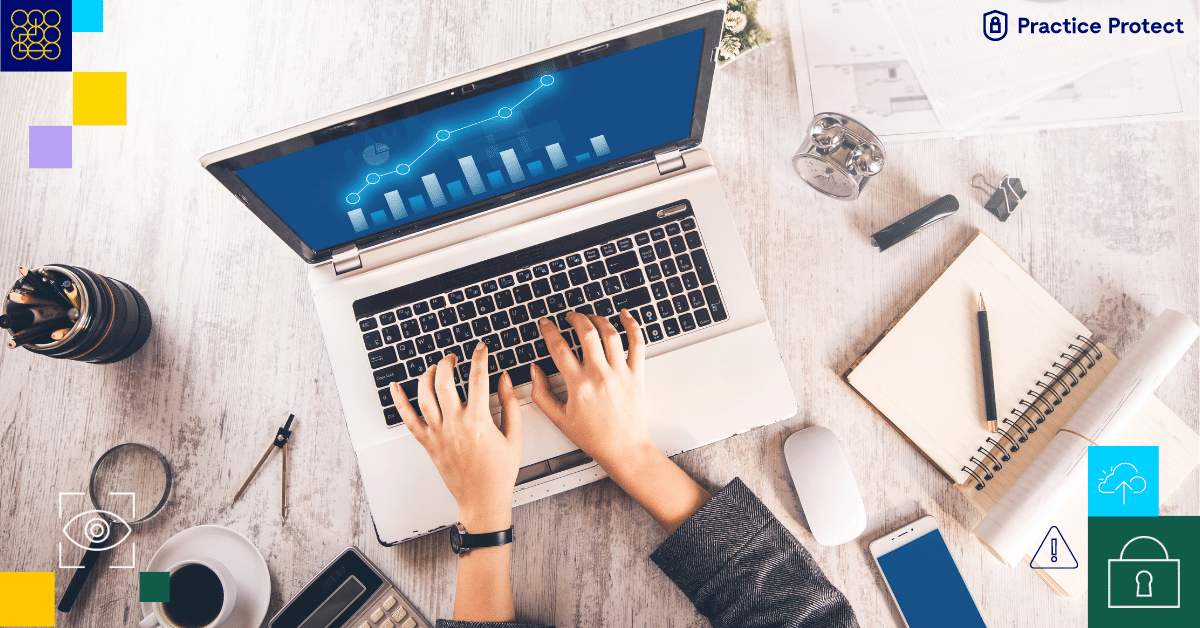Keeping Your Accounting Technology Stack Safe Against Cyberthreats in the U.S.
Blog Understanding Cybersecurity

The accounting industry in the U.S. relies heavily on technology to improve processes, manage data, and essentially run their entire business. This is great, until it all goes wrong.
Accounting firms, especially in the U.S., are prime targets for cybercriminals looking to access sensitive financial information. This raises a critical question for accounting professionals: Is your technology stack truly safe from these threats? Have you got the right protections in place to protect your clients’ data?
Why Cybersecurity is Critical for U.S. Accounting Firms
Cybersecurity has become an essential concern for accounting firms across the United States, not to mention globally as well.
The financial sector is a favorite target for cybercriminals due to the valuable nature of the data involved—social security numbers, tax records, financial statements, and more. In fact, financial institutions are the 5th most targeted industry in the US for criminal hacking attempts.
Size of the firm doesn’t matter – in fact it is anticipated smaller firms are at the most risk as they lack more sophisticated security infrastructure, which criminals know and try to exploit.
Common Cyberthreats Facing U.S. Accounting Firms
To protect your firm against cyberthreats you need to understand the common kinds of attacks criminals attempt to breach your firm.
- Phishing attacks: Cybercriminals attempt to trick employees into sharing sensitive information through fraudulent emails or messages.
- Ransomware: Malicious software which locks files or systems until a ransom is paid. This can bring operations to a standstill, and in some cases even after a ransom is paid, the criminal still will not unlock the files.
- Insider threats: Employees with malicious intent or those who unintentionally expose data can be significant security risks.
Beyond these, accounting firms also need to address risks related to remote work environments and cloud-based tools, where sensitive data can be more vulnerable to breaches if not properly secured.
Components of a Secure Accounting Technology Stack
Creating a secure technology stack is vital for accounting firms aiming to protect client information and financial data. A typical accounting tech stack in the U.S. includes software like QuickBooks, communication tools, cloud storage systems, and banking applications and the like. However, each component in this stack introduces potential vulnerabilities if not safeguarded properly.
Key Security Measures for U.S. Accounting Firms
Below are four of the most critical security measures firms must be taking to protect their firm from cyberthreats.
- Data encryption: Ensuring that sensitive data which includes passwords are encrypted both in transit and at rest helps protect it from unauthorized access.
- Multi-Factor Authentication (MFA): Using MFA adds an additional layer of security by requiring more than just a password for login.
- Controlling access to applications: By focusing on the access to all your applications you can really control who has access to what and when ensuring your firm is as secure as possible
- Staff training: All employees must be educated in cybersecurity best practices, especially how to recognize phishing attempts and secure their workstations.
Exploitable Vulnerabilities in U.S. Accounting Firms’ Tech Stacks
Despite best efforts, many U.S. accounting firms leave themselves vulnerable to cyberattacks due to outdated systems or gaps in their security strategies.
Cybercriminals frequently target weak points such as unpatched software, unsecured networks, irregular or shared passwords, and remote work setups. For example, without proper encryption and access control, a firm’s cloud-based accounting system could be breached, exposing sensitive client data.
Cybersecurity doesn’t need to be your Mount Everest, there are providers like Practice Protect, who can partner with your firm to get your cybersecurity sorted.
Interested in learning more? Chat with one of our Cybersecurity Consultants today!

